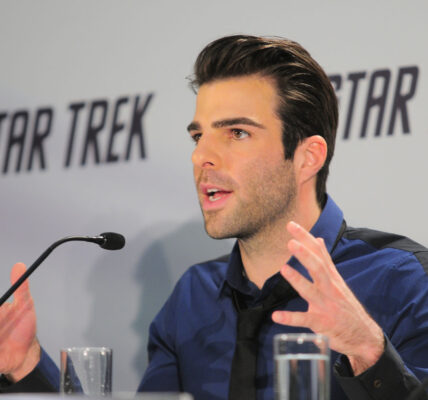movieScope at the LFF: Day Seven
An Education
First up was An Education from Danish director Lone Scherfig, although her coming of age drama is set in early 1960s Twickenham. Adapted by Nick Hornby from Lynn Barber’s memoir, the story revolves around intelligent teenage schoolgirl Jenny (Carey Mulligan) who has her head turned by the much older David (Peter Sarsgaard). As her burgeoning romance with David sweeps her along in a whirlwind of expensive presents, foreign trips and increasingly adult pursuits, Jenny is forced to decide between continuing her education and following her feelings.
An Education
The relationship between a 30-something man and a 16-year-old girl would, on the surface at least, seem to be a premise fraught with difficulty. It would have been easy for the story to have drifted into uncomfortable waters but, thanks to a well-handled script, sensitive direction and two excellent central performances, it plots a course through rose-tinted teen love story to intelligent, adult drama. Sarsgaard is solid as David, whose attraction to Jenny is obvious but whose intentions seem respectful; the fact that he has a good relationship with her parents (played ably by Alfred Molina and Cara Seymour) steers their affair well away from sordid territory. But it’s Mulligan who shines throughout, bringing a wide-eyed naïve endearing charm to her character, her intelligence and pragmatism making Jenny far more than just a silly schoolgirl. She is someone we can emotionally invest in, and so her journey becomes all the more compelling.
It is admittedly shame to see such strong British stars as Rosamund Pike, Dominic Murphy, Olivia Williams and Emma Thompson relegated to mere bit parts, but then this is Jenny and David’s story and it’s a story exceptionally well told. (4 stars)
White Ribbon
Austrian writer/director Michael Haneke’s The White Ribbon is an altogether different prospect; a lengthy black and white drama set in a small German town in the austere years before World War I, it’s about as far from swinging sixties London as you can get. Yet Haneke’s latest is one of his finest works to date. His strength as a filmmaker has always been to focus on the reactions of ordinary people in extraordinary situations, such as in Cache and Funny Games, and this intense character study of villagers besieged by strange events proves mesmerising from the start.
Life in the small community of Eichwald is fairly straightforward; most of the villagers work the land for the wealthy local baron without complaint. But behind closed doors it’s a different story; although espousing the virtues of purity and morality – as signified by the ubiquitous white ribbon – in reality the locals indulge in beatings, affairs, abuse and religious persecution. And when a series of horrific misfortunes occur, including attacks on local children and property, it seems that someone may be fighting back.
The White Ribbon
The White Ribbon is a story of hardship and misfortune, about the sins of one generation polluting the next, about the loss of innocence and about repressed anger and slow-burning hatred that slowly seeps out over an entire township. It is, perhaps, a small-scale forshadowing of the massive, bloody conflict that is about to play out on the international stage. Yet it’s so beautifully crafted, in terms of the performances, the naturalistic direction and the exquisite visuals, that it can’t help but draw you in. The White Ribbon may present difficult themes and have spiky edges and perhaps could not be described as entertainment but, as a piece of cinema, it is undoubtedly stunning. (5 stars)
(For a more in-depth review of The White Ribbon, be sure to check out the Oct/Nov issue of movieScope, on sale now!)










